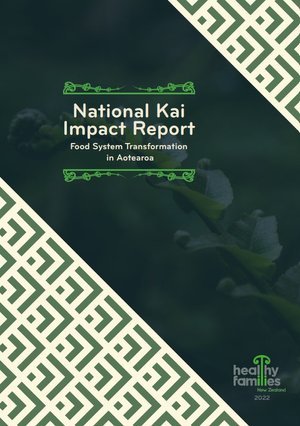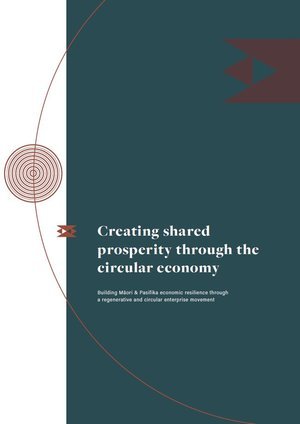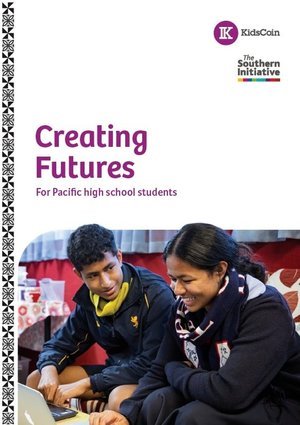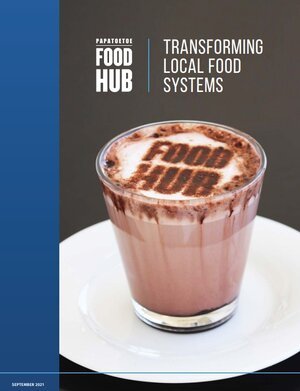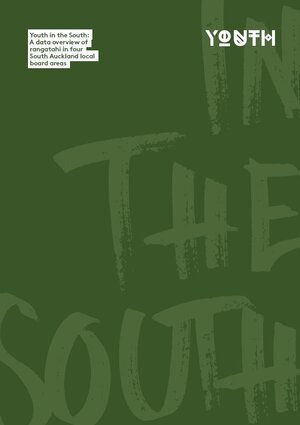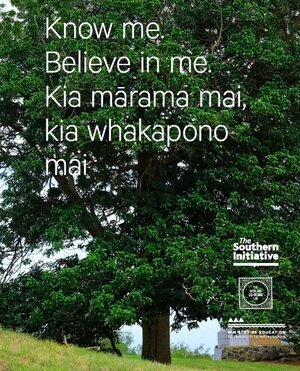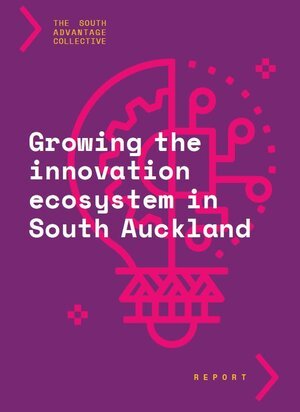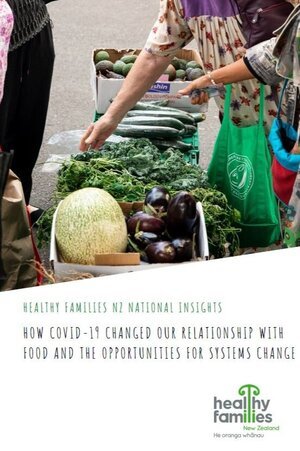Reports
Knowledge is power, but it’s not very useful to transformation if you keep it to yourself. Diffusing data, insights, evidence and learning is critical to systems change.
Find out more about our social and economic equity kaupapa – and why they matter – through our publications.
All our work is licensed under a Creative Commons Attribution-NonCommercial-ShareAlike 4.0 International License unless otherwise stated.
2023
This report provides evidence-based insights for government, philanthropy, policy and decision makers on how to support rangatahi into quality jobs. It is informed from TSI and TWI’s Youth Connections work during 2019-2023 which saw $2.5m distributed to support Māori and Pasifika rangatahi in south and west Auckland.
It is clear that a holistic approach is required to help rangatahi navigate the transition to adolescence and to work. In a world in which the future of work is dramatically changing, against a backdrop of climate change and deepening inequality. The report spotlights stories of impact and poses a series of questions for future funding in youth transitions and employment.
2023
The Aotearoa NZ funding system – the system of organisations that fund for-purpose organisations for social good – is not working for Pacific peoples. This think piece is intended to open space within the funding sector for genuine learning and informed talanoa (discussion) about how funders can better support better outcomes for Pasifika.
Tere ki Mua presents the perspectives and experiences of five Pasifika leaders who are working with, within and against the funding system to catalyse change for their communities. Informed by the taonga shared by our Pasifika leaders, we share approaches, tools and resources for funders to use on their journey towards becoming more systems-aware supporters of Pasifika-led change.
Commissioned by the Peter McKenzie Project and co-led by the Southern Initiative and the Western Initiative.
2023
Employers are part of the solution to closing the Pacific pay gap and raising Pasifika intergenerational wealth and wellbeing. Equally important are central government levers to incentivise employers to enable Pasifika workforce progression.
In this report we describe our learnings to date about the roles of employers and government and make recommendations on the improvements these sectors could make.
2023
Systematic barriers to job progression, promotion and upskilling perpetuate a low-income trap for many Pasifika households. A key means of shifting Pasifika households out of financial struggle is to ensure working household members progress in the labour market into higher paid work.
This report focuses on the issue of progression and identifies macro-level tools to accelerate Pasifika in-work progression with particular emphasis on the levers of central government.
2023
How might we increase the number of Māori and Pasifika rangatahi into high value green and tech career pathways?
Find out more in this report from Te Taiwhanga Rangatahi who have been imagining an economy of mana that’s future focussed, good for people and great for our natural world too.
2023
What role can local government play in making our food systems more sustainable and accessible?
This report outlines different examples throughout the country including The Southern Initiative’s work in south Auckland.
2023
The Southern Initiative partnered with the Manurewa Plunket Family Centre on the renovation of the centre building.
Using the renovation as the focal point, this report describes how we led Plunket staff and a group of local whānau through a co-design process to shift the Plunket team from a service-led approach, in which staff decide what is delivered and how, to one driven by whānau needs and wishes.
2022
Pasifika wealth is significantly lower than for any other ethnic group. How might we grow intergenerational wealth and wellbeing? And for the many who are stuck in low-paid jobs, what will it take to transition Pasifika workers, quickly, into higher paid roles in sunrise industries?
In this report we describe what we’ve learned about the importance of adult learning in these transitions for ‘aiga.
2022
Pasifika peoples are disproportionately over-represented in low paid and sunset industries. What does it take to transition Pasifika workers to higher paid, sunrise industries?
Read about how our learning can be scaled through policy, commissioning, mental models, and existing programme delivery.
2022
Privately owned, Māori small and medium-sized enterprises are the backbone of the Māori economy. Tāmaki Makaurau is the economic powerhouse of Aotearoa but has been the area most affected by Covid-19 lockdowns.
What does the big data tell us about the impacts for Māori businesses, and what risks do we need to pre-empt?
2022
Tāmaki Makaurau spent twice as long in hard lockdown due to Covid-19 than anywhere else in the country. With significant disruption to young people’s schooling, many didn’t return, leaving school to work as families experienced tough economic times. From our previous research on Youth in the South, we knew that completing Year 13 is a significant protective factor for young south Aucklanders. We also had valuable insights and connections from our Youth Economy work.
This is the story of our collaboration with Manurewa High School to test a flexible learning experience in response to these complexities. The prototype then matured into the design lab, Te Taiwhanga Rangatahi, focused on understanding rangatahi through rangatahi themselves.
2022
Aotearoa/New Zealand continues to have some of the highest rates of family harm in the OECD. As well as being violations of human and women’s rights, this harm undermines our efforts in cultural, economic and social wellbeing and in realising Te Tiriti o Waitangi. Integrated community-led responses will require a significant shift from the current system which is largely reliant on formal service-based approaches and prescribed tauiwi and government-led interventions.
This report on visualising the shift to a different response was a collaboration with Te Puna Aonui (formerly the Joint Venture on Family Violence and Sexual Violence) with the generous support of whānau, community and government partners.
2022
is continuing to produce inequitable outcomes particularly for Māori and Pasifika and isn't necessarily working well for ‘all New Zealanders’ either.
This report was commissioned by the Department of Prime Minister and Cabinet as an input into the Review of the Child and Youth Wellbeing Strategy. It describes why we need the shift to locally led responses that are centrally enabled and how it can happen.
2022
This report draws together insights from ongoing innovation work within local government and describes the untapped potential of local government as an activator and champion of wellbeing. The full potential of local government is only unlocked, however, when it operates beyond a transactional use of existing levers focused on short term savings, and towards valuing multiple and longer-term wellbeing outcomes.
This report was commissioned by the Review into the Future for Local Government to support their draft interim report He mata whāriki, he matawhānui.
2022
How can we make our food systems more sustainable and accessible?
Find out more about our Healthy Families work, the difference these initiatives have made and what we learned along the way.
2021
There are dozens of active labour market policies operating across south and west Auckland at any one time, but they’re not stacking up to the change we should expect to see from that investment.
Often, ‘unemployment’ is framed as a supply side problem. But what about the role of employers/demand side?
This evidence brief reviews the literature, evaluations and practice-based evidence on employers and workforce development.
2021
Young people’s role in the economy is consistently narrowly confined to jobs and skills. This does young people, and our economy, a great disservice.
Find out here how young people move through the different realms of the economy, the multiplicity of roles they play and their demands for a greater say in the political economy and shaping the systems that affect their lives.
2021
Placing people into employment is relatively straightforward, especially if they are compelled to by the state. But what matters most is the quality of that employment, career progression and people’s attachment to the labour market.
In this evidence brief, we look at what worked and what didn’t in our employment brokering mahi.
2021
What is the Māori economy and what does it look like?
Read our big data report produced by BERL on Māori workers and businesses for the most comprehensive overview to date of how Māori are faring in the country’s largest city.
2021
Economic inequality is the slow violence relentlessly undermining south Auckland’s prospects. Undoubtedly, this will be exacerbated by the economic shocks from Covid-19 and others still to come. What could a massive mobilisation of investment look like?
Off the back of the Prosperity South and West report, we homed in on Māori and Pasifika businesses and workers pioneering a circular economy like nowhere else in the world.
Read more about our ambitious vision.
2021
When Covid-19 hit, we knew that the economic shock would hit south and west Aucklanders first, hardest, and longest, as happens with every economic shock.
Joining forces with Tātaki Auckland Unlimited, we developed a bold vision on how we could disrupt the viscous cycle of inequity and turn the crisis into an opportunity for transformational change.
2021
KidsCoin creates learning opportunities that grow curiosity, passion, understanding and confidence in financial literacy and digital technologies. This Māori and Pasifika-led social enterprise delivering tangible social, cultural, and economic benefits for Māori and Pasifika youth, their whānau and communities.
Find out more about why we’re big fans of KidsCoin.
2021
This big data story about dads in south Auckland is a collaboration between The Southern Initiative and the Social Wellbeing Agency. How having a baby affects dads was one of the key findings of an earlier report Towards better social sector decision-making and practice – A social wellbeing approach.
In this big data report, we look at how income, occupation, length of time in a job and leave eligibility results in one in every four Māori and Pasifika dads are missing out on partner parental leave.
2021
Since emerging as an idea in 2017, the Papatoetoe Food Hub in south Auckland has been growing a community-based approach to providing good and affordable food.
In this report we describe the journey and our learnings.
2021
Social innovation requires discipline from design to execution, to learning and iteration. Te Korekoreka and the Niho Taniwha are two evaluative frameworks that we use in understanding the practice in, and effect of, our work.
In this paper we share the journey of creating these evaluative frameworks and how we use them at both The Southern Initiative and Tokona te Raki: Māori Futures Collective of Te Rūnanga o Ngāi Tahu.
2020
How might we better design and deliver youth employment initiatives in south Auckland? It starts by having the right information. In this follow-on report from He Awa Ara Rau, we interpret what the big data tells us about the lives of thousands of young south Aucklanders.
This big data report shows that, with the right focus, we could make a big difference to young people’s prospects.
2020
A precursor to Te Taiwhanga Rangatahi youth lab, this collaboration between the Ministry of Education, The Southern Initiative, Co-design Lab and Middlemore Foundation provides insights gained from lived experiences and observations of the education system. We sought rangatahi, whānau and school perspectives on supporting attendance, engagement and wellbeing.
Read more about what we discovered with Manurewa students, including from Manurewa High School, and how we might scale innovations within the education system to improve rangatahi experiences in secondary schools.
2020
The South Advantage Collective is growing the innovation ecosystem in south Auckland. This report outlines how the Collective has been spearheading this for the past two years and lays out a bold vision for south Auckland’s digital future post-COVID-19 world.
2020
This national report across Healthy Families sites provides five key insights on the impact of the first Covid-19 lockdown on food systems. Read here about what happened in south Auckland.
2020
In March 2020, the country went into nation-wide lockdown to curb the spread of Covid-19. What did this mean for places like south and west Auckland, already bearing a heavy burden of economic inequality? What strengths were activated and where did pressure points emerge or worsen?
This snapshot brings together themes and impressions gathered through the course of our work and connections with whānau, businesses and community partners during the level 4 lockdown that started in March 2020.















